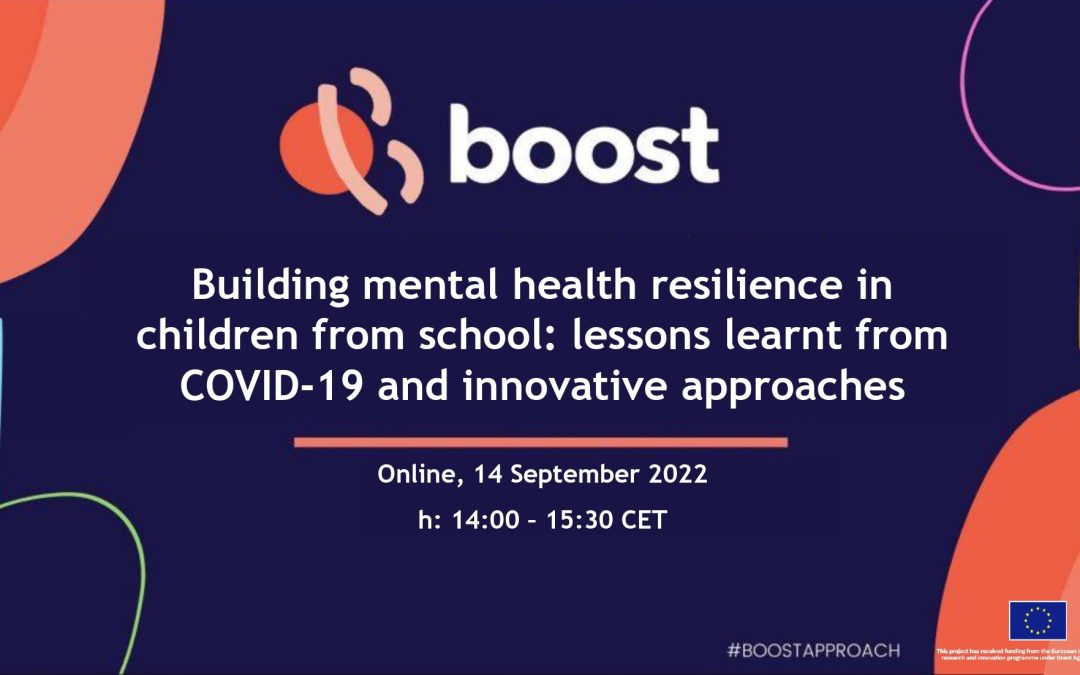Building mental health resilience in children from school:
Lessons learnt from COVID-19 and innovative approaches
Online webinar – 14 September 2022 – 14:00/15:30
Mental well-being is an essential component for leading healthy and productive lives. Over the past two years, the COVID-19 pandemic has severely affected people’s mental health, especially the most vulnerable groups, like children. School closures and restrictions in social life imposed by the containment policies had a very negative impact on the youngest during crucial developmental phases, effects that may drag on for years to come. The risk of a “silent pandemic”, as defined by Commissioner for Health and Food Safety, Stella Kyriakides, during the last World Mental Health Day (10 October 2021), has put mental health on the top of EU and Member States’ policy agenda, and raised awareness of the importance of mental health resilience as a key concept for the well-being of young generations.
Mental health resilience has always been a primary goal for the BOOST project. Since 2018, BOOST has been working to develop, implement, and test an innovative Social and Emotional Learning (SEL) based approach to promote mental health and well-being in primary school children through direct intervention in the school ecosystem. In fact, research shows that many school-based SEL programs have proven to be effective in increasing social well-being and academic achievement in children and have positive long-term effects such as increased success in the labor market and life in general.
Despite the limitations posed by the pandemic, BOOST maintained close contact with schools and has sought to turn obstacles into opportunities by adapting and renewing its approach to the response of schools and new circumstances. This webinar will be an occasion to present the state of the art of the project and show the latest results and data evidence in light of the impact of COVID-19 on the school environment over the past two years in the three BOOST countries (Norway, Spain, and Poland), and deep dive into the impact of COVID-19 on children in the European Union and the tools and strategies currently in place to stem the consequences, with a close eye to the role of schools in promoting mental well-being from early childhood.
Speakers include:
- Alviina Alametsä, MEP, Co-chair of the Coalition for Mental Health and Wellbeing in the European Parliament
- Stine Hellum Braathen, Scientific Coordinator, BOOST project, SINTEF;
- Konstantinos Antypas, Senior Research Scientist, SINTEF
- Olga Gómez-Ortiz, Assistant Professor, University of Cordoba
- Agata Wiza, Associate Professor, Poznan University School of Physical Education
- Celeste Simões, Associate Professor, Department of Education, Social Sciences and Humanities, University of Lisbon
- Fatima Awil, Policy & Knowledge Officer, Education, Youth and Vulnerable Situations, Mental Health Europe
- Ase Marit Hovden, BOOST project partner, Viken County;

